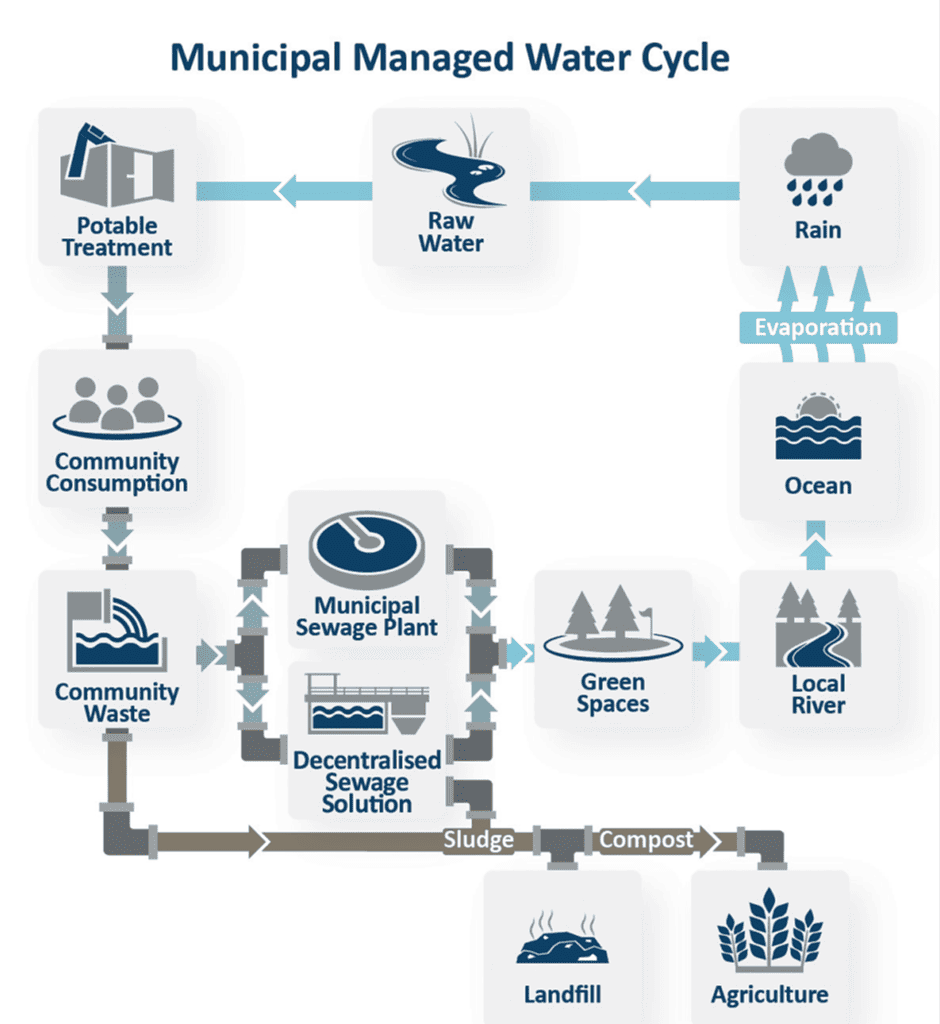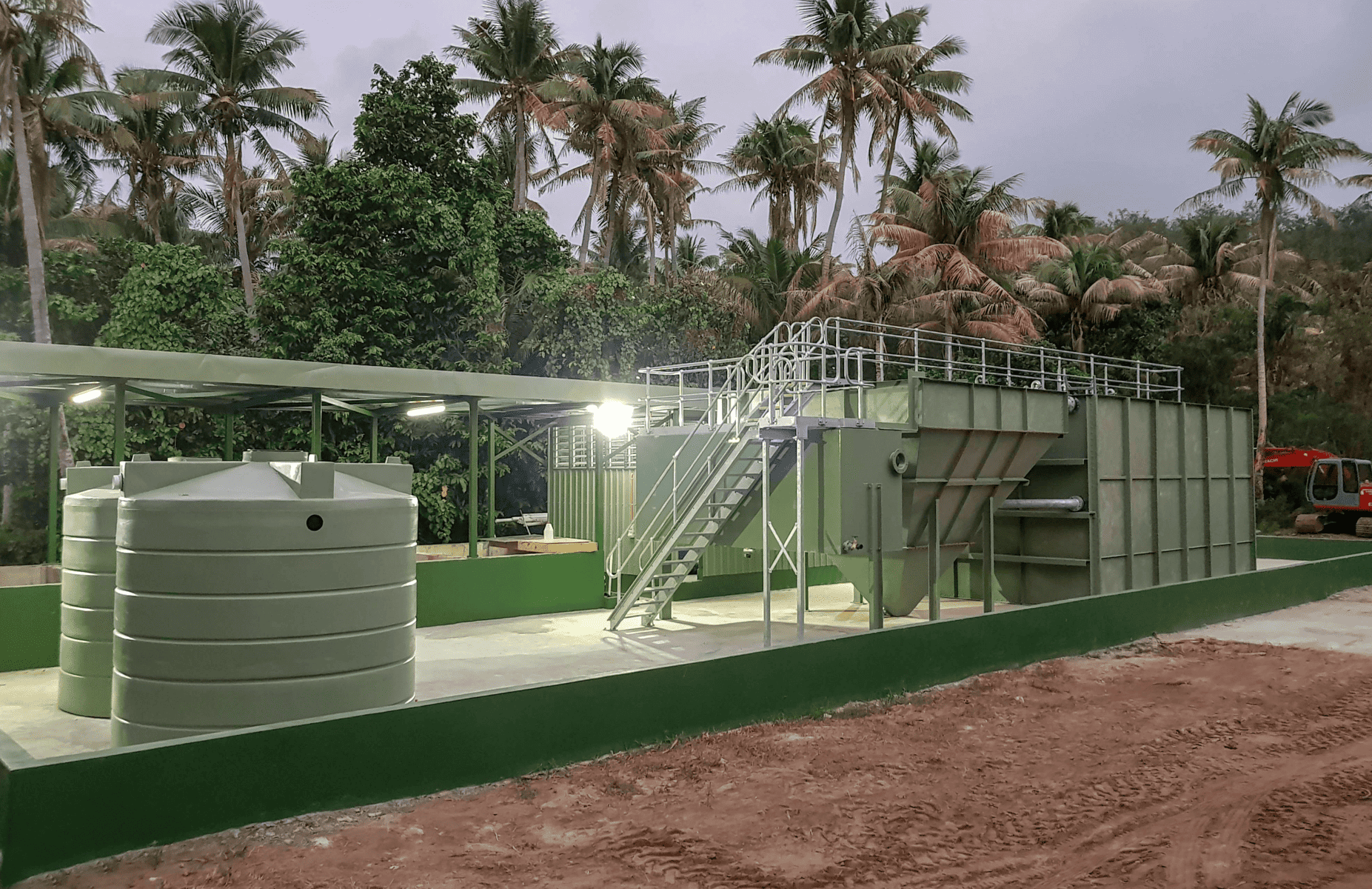As the Pacific Water and Wastewater Association annual conference approaches once again, we reflect on water as one of the most critical issues surrounding climate change in the Blue Pacific Continent.
A secure future for water in the Pacific is one where society has access to affordable water, meeting the needs of sustenance, sanitation, health and well-being. To achieve a sustainable level of drinking water and human well-being, it is necessary society adopts a systems based approach to provide potable water and wastewater solutions at every touch point of the managed water cycle, from industry through to communities.
The diagram below is the Hydroflux interpretation of the managed water cycle with solutions available for every stage of the process, accessible by all key stakeholders along the water security pathway. The entire managed water cycle needs to be considered from catchment, to initial use and treatment for reuse, with a vigilant eye on environmental discharge.

Providing solutions for the managed water cycle is just one part to a two part approach because solutions need to be resilient in order to provide resilience to stakeholders for true water security to be achieved. That is why Hydroflux provides a cradle to grave support approach to water assets.
The Hydroflux Group addresses water security and resilience by designing turnkey solutions for each client and by providing solutions that:
- Are regionally supported for the life cycle of the system from Suva, Fiji
- That use as much local content and engagement as possible
- Provide for industrial consumption and trade waste treatment
- Provide for municipal and decentralised anthropocentric use in potable water and sewage
- Provide for ongoing sustainable consultation and support to assist clients with continuous improvement strategies and policies across all UN Sustainability Development Goals of which water is number 6 of 17.
An example of water security in action can be found in the Hydroflux Epco project on the island resort of Likuliku, Malolo Island, Fiji. In this instance, a Hydroflux RoadTrain® decentralised sewage treatment plant was provided as a robust solution prior to environmental discharge of effluent.
In this instance, Hydroflux designed the treatment process based on client-supplied data then constructed and installed the plant using local sub-contractors from the Fijian industrial landscape. In line with our standard client commitment, Hydroflux then commissioned the plant, trained the site staff to operate the facility and continue to provide aftermarket support in the supply of chemicals, spare parts and operational guidance. The Hydroflux approach is one that considers a circular economic response to a water solution as the most appropriate means to increase water security for its clients and their stakeholders.
Globally, the future of water is uncertain, and the resilience of communities is deeply seated in the availability of water. By optimising its use and reducing the negative impacts of its abuse, we can greatly improve availability.
Without water for industry, society stops. Without maximising water reuse and reducing the external impact of trade waste from industry, water for society and the environment becomes polluted and depleted. A polluted and depleted environment diminishes the resilience of Pacific communities, reduces availability of natural resources, diminishes food stock and reduces tourism. A prosperous economic future for the Blue Pacific Continent is severely restricted without a bountiful marine environment and prosperous communities protected by appropriate solutions.
The Hydroflux Group continues to be a key regional partner for Pacific utilities, industry and communities – by providing sustainable water solutions to help preserve water security and optimise water use in an effort to build resilience and mould a secure water future.
Meet our water and wastewater experts to discuss securing your water security, at our trade exhibit in the 13th PWWA Annual Conference, at the Sofitel Fiji Resort & Spa, Denarau, Nadi, Fiji, 14-18 November 2022.
